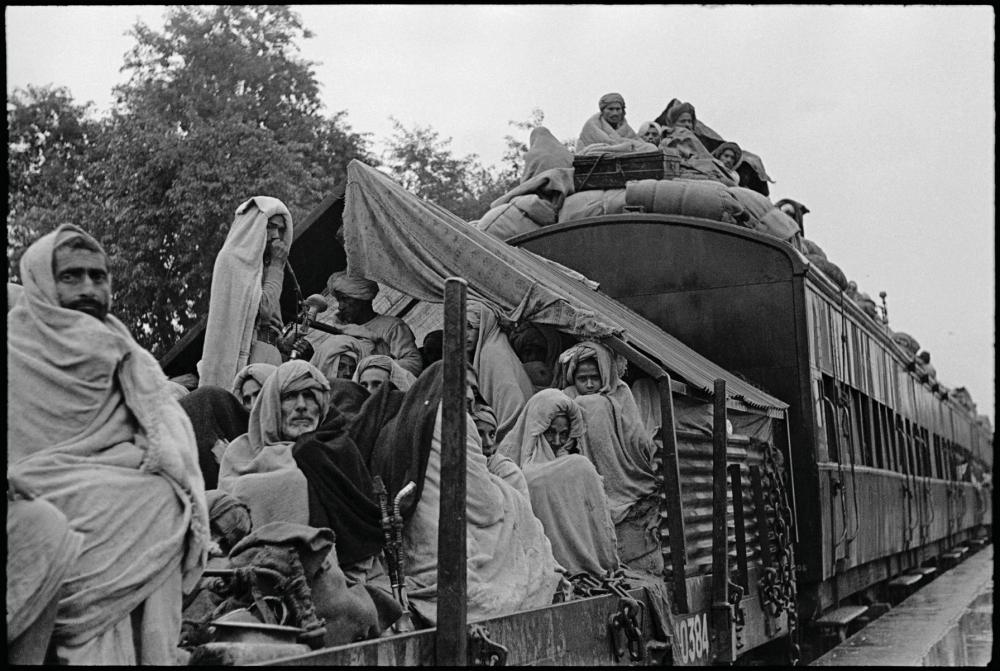
75 years ago, Britain's control over 400 million people on the Indian subcontinent ceased. It was the beginning of the end of the British empire. On 14 August 1947, people in Pakistan proudly marked the creation of the new dominion with a ceremony in Karachi, attended by the governor-general Muhammed Ali Jinnah. A day later, led by India's new prime minister Jawaharlal Nehru, Indians celebrated the British departure. British India had been carved up into two countries, Pakistan and India, largely along religious lines. The former included East Pakistan, separated from West Pakistan by almost 1,000 miles.
The movement for independence had begun many decades earlier. The British had formally arrived in India in the 1600s, establishing trading posts under the British East India Company, and India came under direct British rule in 1858. The nationalist movement began in the late 19th century and gained huge momentum following the Second World War - a conflict in which 2.5 million soldiers from what is today India, Pakistan and Bangladesh served.
As religious identity became stronger stoked, many commentators have argued, by British policies of divide and rule - two competing visions of independence emerged, which grew increasingly politicised along religious lines. The Congress Party, led by Nehru, wanted India to remain united in a secular state once the British left. But by 1940, Jinnah, leader of the Muslim League, felt that India's almost 100 million Muslims - a quarter of the population - would be marginalised by the Hindu majority. He wanted safeguards to be put in place, and even a separate homeland.
DIVIDED COMMUNITIES India and Pakistan after partition
This story is from the September 2022 edition of BBC History UK.
Start your 7-day Magzter GOLD free trial to access thousands of curated premium stories, and 8,500+ magazines and newspapers.
Already a subscriber ? Sign In
This story is from the September 2022 edition of BBC History UK.
Start your 7-day Magzter GOLD free trial to access thousands of curated premium stories, and 8,500+ magazines and newspapers.
Already a subscriber? Sign In

The Aztecs at war
RHIANNON DAVIES discovers why war was so important to the Mesoamerican people - and why they believed a badly cooked meal could prevent a soldier from shooting straight

Towering achievement
NATHEN AMIN explores a 13th-century stronghold that was built to subdue independent-minded Welsh people, yet has since become a symbol of courage in the face of overwhelming odds

Eighteenth-century mushroom ketchup
ELEANOR BARNETT shares her instructions for making a flavourful sauce with roots in south-east Asia

Goodbye to the gilded age
JOHN JACOB WOOLF is won over by an exploration of the Edwardian era, which looks beyond the golden-era cliché to find a nation beset by a sense of unease

The power of the few
Subhadra Das's first book catches two particular waves in current publishing.
The 'badass' icon
One of the problems with biography, if an author is not careful, is that it can quickly become hagiography.

Ghosts of Germany's past
KATJA HOYER is impressed by a study of a nation's attempts to grapple with the crimes it perpetrated during the Second World War

A window onto England's soul
SARAH FOOT has high praise for a book that traces the evolution of English Christianity over the course of 1400 years, through the lives of its greatest thinkers

"There was a general perception that Queen Victoria's mourning was neither normal nor acceptable”
JUDITH FLANDERS talks to Rebecca Franks about her new book, which delves into the customs surrounding dying, death and mourning in Victorian Britain

"Indigenous children were forcibly separated from their families"
HIDDEN HISTORIES... KAVITA PURI on the legacy of Canada's residential schools